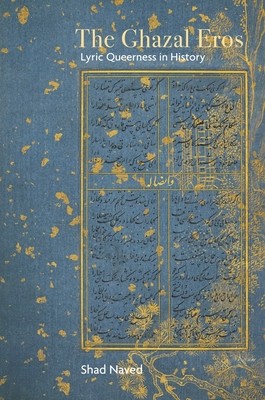
- We will send in 10–14 business days.
- Author: Shad Naved
- Publisher: Tulika Books
- ISBN-10: 8196580312
- ISBN-13: 9788196580315
- Format: 14.2 x 24.1 x 2.3 cm, kieti viršeliai
- Language: English
- SAVE -10% with code: EXTRA
Reviews
Description
The old ghazal, i.e. the poetry of eros in Urdu, Persian and Arabic, has been read as great literature but seldom as a document of history. This book argues that there is one element - the expression of masculine passion (ʽishq) for a masculine object - that has shaped the ghazal historically and across languages. The neglect of this element, which it terms lyric queerness, in mainstream cultural history and even LGBTQ studies, screens from us a lyrical corpus that was historically aware, vernacularizing, and suspicious of other-worldly interpretations and is represented here by the ghazal of the Indian subcontinent.
EXTRA 10 % discount with code: EXTRA
The promotion ends in 23d.02:49:24
The discount code is valid when purchasing from 10 €. Discounts do not stack.
- Author: Shad Naved
- Publisher: Tulika Books
- ISBN-10: 8196580312
- ISBN-13: 9788196580315
- Format: 14.2 x 24.1 x 2.3 cm, kieti viršeliai
- Language: English English
The old ghazal, i.e. the poetry of eros in Urdu, Persian and Arabic, has been read as great literature but seldom as a document of history. This book argues that there is one element - the expression of masculine passion (ʽishq) for a masculine object - that has shaped the ghazal historically and across languages. The neglect of this element, which it terms lyric queerness, in mainstream cultural history and even LGBTQ studies, screens from us a lyrical corpus that was historically aware, vernacularizing, and suspicious of other-worldly interpretations and is represented here by the ghazal of the Indian subcontinent.


Reviews